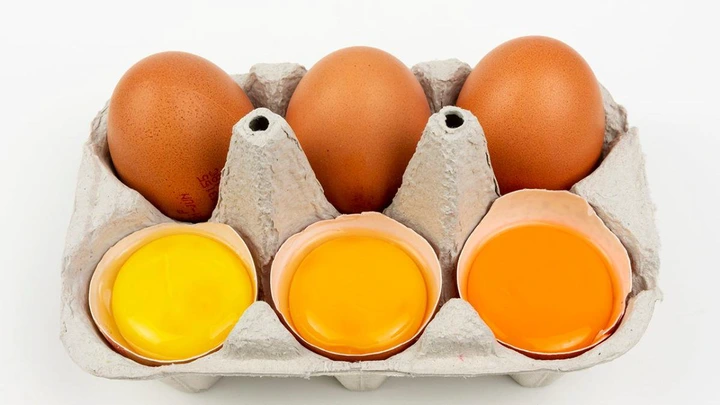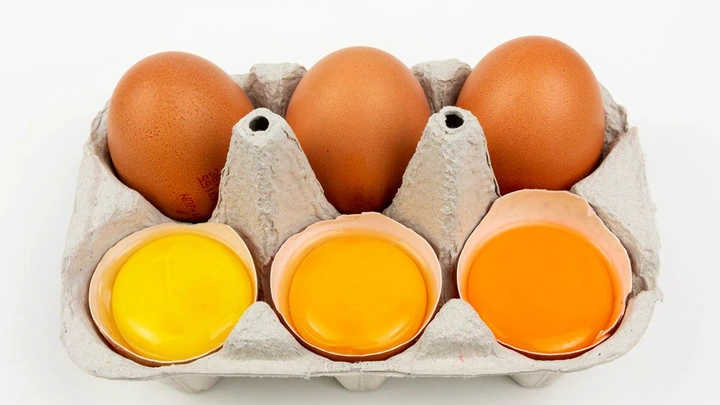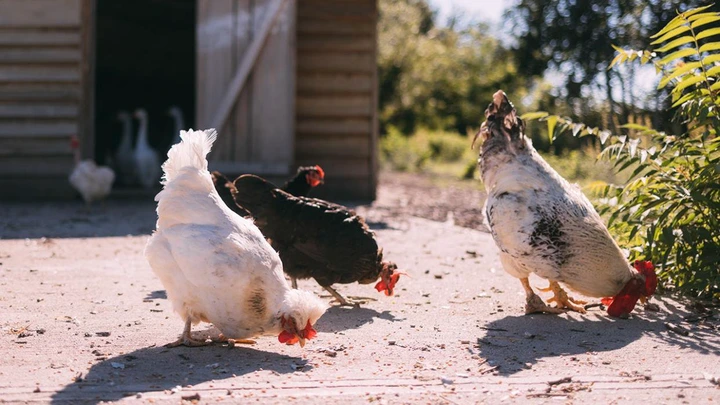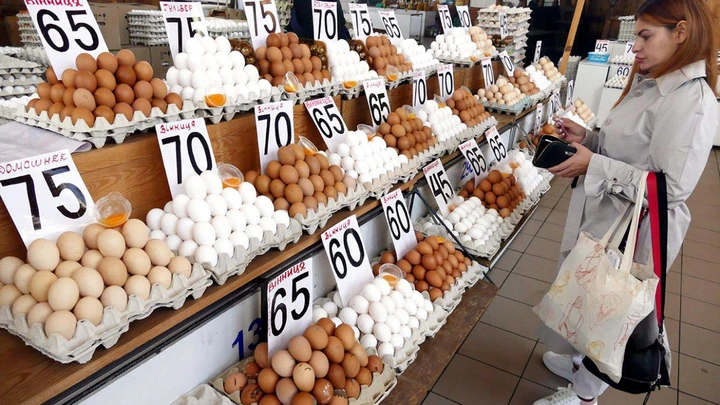Business
Walmart's weekend sale is underway – check out these 27 clearance bargains that I would grab before they disappear!
2025-03-27 13:38:38
Browse affordable TVs, robotic vacuum cleaners, AirPods, coffee machines, and much more!
View pictures in App save up to 80% data.
(Images courtesy of Future)
Get ready for Walmart's weekend blowout! The retailer is launching an exciting sale featuring clearance discounts on a wide range of products, including TVs, Apple gadgets, laptops, air fryers, robot vacuums, and coffee machines.
As the deals editor at TechRadar, I frequently report on Walmart's sales, and I've taken the time to sift through this weekend's offers to curate a list of the 27 top deals I would personally invest in. Even though we’re in a lull between holiday sales, it’s an excellent opportunity to snag some great bargains, particularly with clearance items from last year's most popular products. You can discover unprecedented low prices on brands like Apple, Bissell, Ninja, Samsung, and Dyson.
A few highlights include the popular Solo Stove Ranger 2.0 on sale for $199.99, this 65-inch 4K Roku TV from Onn. on sale for $298 and this handy towel warmer on sale for just $59.
Explore more of Walmart's top weekend specials listed below and remember that these offers are available for a limited time only. Some products may be older models, so this could be your final opportunity to purchase them at a reduced price.
Walmart weekend promotions - fast access links
Walmart weekend discounts – 27 bargains I’d personally invest in
Ninja Blast Portable Blender:
was $59.99
now $44.88 at Walmart
Take advantage of Walmart's winter sale and grab the top-rated compact, single-serve blender for only $44.88. It's perfect for whipping up your daily smoothie or protein shake. Featuring a convenient built-in handle and a sippy cup lid, you can easily prepare your favorite beverage right before heading out the door.
SLF Luxury Towel Warmer:
was $119
now $59 at Walmart
I have my eye on this towel warmer for the winter season, and I just spotted a highly-rated model from SLF at Walmart for an amazing price of $59. It boasts a 20L capacity and comes with an adjustable heating timer that offers three settings, ensuring that you can enjoy cozy, warm towels whenever you need them.
Ninja Grand Kitchen System:
was $169
now $128 at Walmart
Kick off your New Year's resolution early with the Ninja Grand Kitchen blender, available for just $128. This deal includes a spacious 72-ounce blender, an 18-ounce Nutri Ninja Cup complete with a convenient to-go lid for your smoothies, and an eight-cup food processor bowl to simplify meal prep.
Keurig K-Elite Single Serve Coffee Maker:
was $189.99
now $119 at Walmart
Prepare a delicious cup of coffee in under two minutes using the popular K-Elite from Keurig, currently available for just $119. With five different brew sizes to choose from, you can customize your coffee quantity. Plus, the Strong brew and Iced options allow you to savor a rich morning drink or a cool afternoon pick-me-up effortlessly at the press of a button.
Acer Chromebook 315:
was $179
now $139 at Walmart
The Acer Chromebook 315 features a spacious 15.6-inch Full HD touchscreen, making it an excellent choice for those who require ample screen real estate for tasks such as extensive spreadsheets or school projects. Powered by an Intel Celeron processor, it delivers smooth performance with ChromeOS, while the integrated parental controls ensure a safe browsing experience for younger users.
Apple AirPods Pro 2:
was $249
now $189.99 at Walmart
Apple's best-selling AirPods Pro 2 are some of the best earbuds on the market, and you can find them in stock and on sale for $189.99 at Walmart. The AirPods Pro 2 feature active noise cancellation, an improved audio quality, and a wireless charging case that provides more than 24 hours of battery life.
Apple Watch SE, 40mm:
was $249
now $199 at Walmart
Although the $199 price isn't the most competitive we've encountered, it remains the lowest available option for an Apple Watch. The Apple Watch SE may not include all the advanced features of the Apple Watch 10, but it does offer a speedy processor, impressive battery longevity, and a variety of health and fitness functionalities.
Solo Stove Ranger 2.0 with Stand:
was $234.99
now $199.99 at Walmart
The best-selling Solo Stove makes a great addition for the colder season, and Walmart's winter sale includes the Ranger 2.0 model for $199.99 – a record-low price. The smokeless, portable Solo Stove includes a stand, a removable base plate, and an ash pan, making cleaning easier.
Dyson V8 Absolute Cordless Vacuum:
was $519.99
now $349.99 at Walmart
For those looking to save money without sacrificing quality, the Dyso V8 Absolute is an excellent choice at only $349.99. Ideal for pet owners, this vacuum boasts a de-tangling motor bar suitable for both hardwood and carpeted surfaces, and it easily converts into a handheld vacuum for swift and effortless cleaning.
Apple iPad 10.9 (2022):
was $349
now $299 at Walmart
Walmart has Apple's best-selling 10.9 iPad on sale for $299 - $20 more than the record-low price. In our iPad 10.9 (2022) review, we said Apple's latest base-level tablet is a big upgrade over the previous generation model, offering a larger Liquid Retina display, a new A14 Bionic chip, improved cameras, USB-C support, and a sleek design.
Onn 65-inch 4K UHD Roku Smart TV:
was $348
now $298 at Walmart
In search of an affordable large-screen television? Check out this 65-inch model from Onn., currently priced at just $298. It features stunning 4K UHD resolution and a sleek frameless design that provides an immersive edge-to-edge viewing experience. Additionally, the Onn. TV includes the Roku platform for seamless streaming and a user-friendly app that lets you use voice commands to start shows, explore movies, and control the volume.
iRobot Roomba Combo j5:
was $529
now $299 at Walmart
Check out this amazing offer on the Roomba robot vacuum mop combo, now available at its lowest price ever! The j5 model utilizes the iRobot Home App to set up no-mop zones, allowing it to vacuum your hard surfaces while simultaneously mopping, all while steering clear of your carpets.
Vizio 75-inch 4K UHD HDR Smart TV:
was $598
now $498 at Walmart
This television deal was completely sold out on Black Friday, but it's now available again at an amazing price of $498. The 2024 model boasts 4K UHD resolution, Dolby Vision HDR, and HDR10, along with smart features powered by a voice-activated remote, making it a fantastic buy.
Apple MacBook Air M1:
was $999
now $649 at Walmart
While we've seen the Air M1 go for as little as $699 previously, Walmart has beaten that already excellent discount by a whole $100. Not only is this an outstanding price for such a powerful laptop that still holds up great for 2024, but this could be the last chance to pick one up now that it's officially discontinued. Don't miss this incredible deal if you're looking for a great bang for the buck MacBook.
Samsung 55-inch The Frame QLED TV (2024):
was $1,499.99
now $897 at Walmart
The Frame TV by Samsung is my ideal display for 2025, and right now, the 55-inch version is available at an all-time low price of $897. The 2024 model boasts Pantone art-validated colors, ensuring stunningly realistic visuals. Additionally, it now includes Streams, a free collection of artwork that can be streamed directly from the Samsung Art Store.
Samsung S90C 55-inch OLED TV:
was $2,499
now $1,279 at Walmart
Whatever you need, the Samsung S90C has got you covered. Featuring HDR OLED technology, it meticulously analyzes every scene to deliver vibrant and precise Pantone-validated colors consistently. The picture quality is impressive for films, series, and gaming, while the audio performance exceeds expectations for built-in TV speakers. Additionally, the Samsung S90C is equipped with four HDMI 2.1 ports, making it an ideal choice for gaming consoles. Currently, Walmart is offering a fantastic deal on the 55-inch model, priced at just $1,279.
read more



